SCIENCE, NAUTICS AND MEN IN THE FIRST CIRCUMNAVIGATION
DOI:
https://doi.org/10.51743/cih.87Keywords:
first circumnavigation, magallanes, elcanoAbstract
This is the historical relationship of a personal ambition, that of Magellan, and the determined support of various characters, of a commercial vision, that of the Crown and individuals and made up of 265 personal stories. In them we find the best and the worst of the human being: courage, willpower, perseverance, spiritual sense, love for the unknown, passion for new cultures, lands, discoveries and also… fear, betrayal, cowardice, greed and lust. Each of these virtues and defects have their own names and surnames. We will see them in the episodes that mark this adventure in its organization, financing and results, whose main milestones were: the gestation of the expedition in Seville Burgos, Valladolid ... the preparation in Seville, the departure from Sanlúcar de Barrameda, navigation to the Canary Islands, Cape Verde, Brazil, San Julián, the passage and the discovery of the long-awaited Strait, which would allow to reach the islands of spices, the ultimate objective of the trip, navigation through the Pacific, the meeting of the San Lázaro islands. , the death of Magellan and finally the return.
Downloads
Global Statistics ℹ️
|
404
Views
|
617
Downloads
|
|
1021
Total
|
|
References
Antonio PIGAFETTA, Primo Viaggio Intorno al Globo Terracqueo, prólogo de Emilio Lamo de Espinosa. REAL INSTITUTO ELCANO. Madrid. 2016.
Francisco DE ALBO, Diario del viaje de Magallanes desde la altura de San Agustín hasta regreso a España. Archivo General de Indias, Patronato 34, Rama 5.
Julio F. GUILLÉN Y TATO. Cartografía Marítima Española, Editorial Naval 1943.
Enrique MARTÍNEZ RUIZ, Desvelando Horizontes. Página 342. Fundación Museo Naval. 2016.
Marcelino, GONZÁLEZ, La Nao Victoria, y su vuelta al Mundo. Fundación Alvargonzález, Gijón 2019.
Real Cédula de 5 de mayo de 1519, recogida en Desvelando Horizontes la Circunnavegación de Magallanes Elcano. Fundación Museo Naval. Madrid. 2016.
Roger CROWLEY. El Mar sin fin. Ático de los Libros. Madrid 2018.
Dolores HIGUERAS, Marinos Cartógrafos españoles. Prosegur. Madrid 2002.
Stephan ZWEIG, Américo Vespuccio relato de un error histórico. Acantilado, Madrid 2019.
Ricardo CEREZO, La cartografía náutica española en los siglos XV, XVI y XVII. Madrid 1994 CSIC.
José CASTAÑO, El libro de las pesas y medidas. La Esfera de los Libros. Madrid, 2015
Al MAQRIZI, en Ibn Jaldún, El Mediterráneo en el siglo XIV. pág 52. Fundación el Legado Andalusí. Granada 2006.
Piri REIS, El Libro del Mar, WEB Sociedad Geográfica Española. Madrid, 20 de junio 2019.
Julio Cayo SOLINO, Colección de hechos memorables Gredos. Madrid 2001.
Julio F. GUILLÉN, Europa aprendió a navegar en libros españoles. Instituto Histórico de Marina. Barcelona 1943.
Rafael MONLEON, Construcción naval. Lunwerg. Barcelona 1990.
Alan GURNEY. El Compás. Editorial Juventud. Barcelona 2005.
Marta NEGRO y otros. De Castrojeriz a Brujas. Edición Parroquia de Castrojeriz. Burgos 2010.
Mercedes GARCÍA-ARENAL (coord..) Al Andalus Allende el Atlántico. Pág. 45.Unesco. Granada 1997.
Michael YAMASHITA. Zheng He, los 7 viajes épicos alrededor del mundo del mayor explorador chino (1405 – 1433). Editorial Blume Barcelona 2007.
Downloads
Published
How to Cite
Issue
Section
License
The Fundación Universitaria Española publishing house preserves the patrimonial rights (copyright) of published works, and encourages and allows their reuse. The works are published in the electronic edition of the journal under a license “Creative Commons Atribución/Reconocimiento-NoComercial 4.0 Licencia Pública Internacional — CC BY-NC 4.0”, and can be copied, used, disseminated, transmitted and publicly exhibited, provided that : a) the authorship and original source of its publication is cited (journal, publisher and URL of the work); b) are not used for commercial purposes; c) the existence and specifications of this license of use are mentioned.
The author / s partially transfer the property rights (copyright) of this work to the Fundación Universitaria Española (Spain) (NIF: G28433670), for the printed and online editions.
It also declares to have respected the ethical principles of research and to be free from any conflict of interest.
«C.I.H.» encourages the authors and the scientific community to the maximum promotion and dissemination of the works in their final version through:
1) Your list of contacts (emails) and social networks (Facebook, Twitter, LinkedIn ...).
2) Institutional repository of your University and public repositories (Mendeley, Cosis ...).
3) Scientific social networks (ResearchGate, Academia.edu, Kudos ...).
4) Personal or institutional website, blog, etc.
5) Google Scholar, ORCID, ResearchID, ScopusID, Dimensions, PlumX ...
6) Printed copies purchased directly and sent to specialists for reading and subsequent citation if appropriate.
For the nomination of future articles by authors of "C.I.H.", the impact of previous works will be taken into account, so that those with citation higher than the annual average of the journal will be preferred.






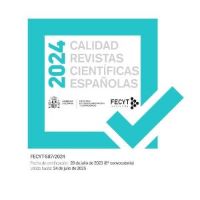




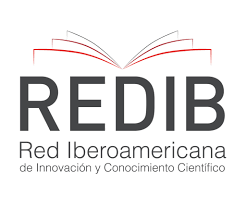
2.jpg)


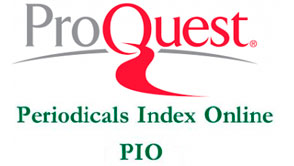
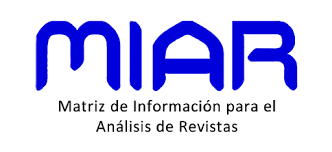



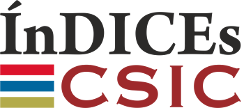



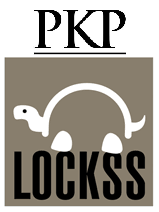
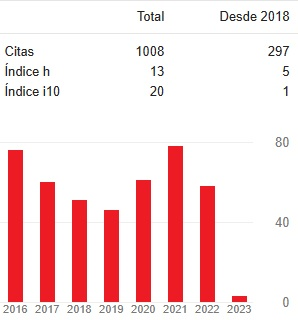



1.png)
1.png)

1.png)


.png)
.png)

.png)
1.png)
1.png)
